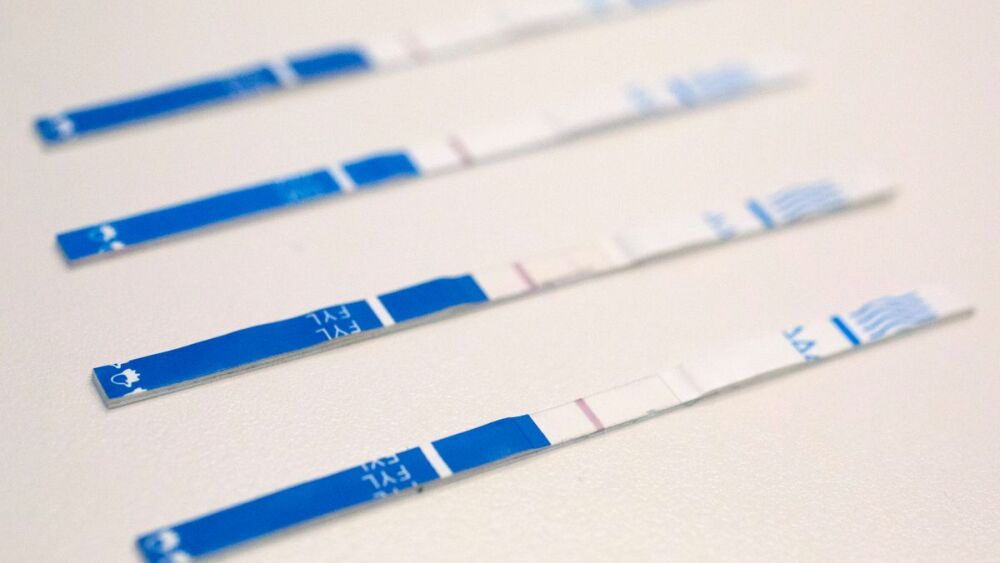By Aubrey Graham, LCSW, CSAC, CSOTP, Emily Siqveland and Kurt Larrick
Arlington County, Virginia, which sits just across the Potomac River from Washington D.C., recently announced that fentanyl test strips will be provided to certain inmates as they leave jail. The program is one of many innovative approaches to tackling the opioid epidemic.
JCOIN study
Arlington is one of several jurisdictions participating in a study to assist local jails in developing and creating medication-assisted treatment (MAT) programs in detention facilities.
The study is part of the Justice Community Opioid Involved Network (JCOIN), which is funded through the National Institute of Drug Abuse (NIDA). Jail-based Arlington County Department of Human Services (DHS) and the Arlington County Sheriff’s Office staff are collaborating on the project.
As part of the study, Arlington added opioid use screenings to booking procedures to identify Opioid Use Disorder (OUD) clients within the first 24 hours of booking.
Data analysis of booking and release dates revealed that a high number of individuals were coming in and out of the facility in a short period. While Arlington has long provided jail-based substance use disorder services, they are geared toward inmates with longer duration incarceration periods. For those inmates identified with OUD and returning to the community relatively quickly, DHS realized there was an additional opportunity to combat the opioid epidemic with emergency MAT kits.
The first MAT kits contained treatment resources for the D.C./Maryland/Virginia area, toiletries, a Metro card and a box of NARCAN Nasal Spray, the opioid overdose reversal medication, all provided within a small backpack. As of September 1, fentanyl test strips are now included in these emergency MAT kits. The MAT kits are organized through a partnership with Arlington’s opioid stakeholder group, Arlington Addiction Recovery Initiative, and jail-based DHS staff. They are funded through a combination of state and federal funds.
Screenings identify high-risk individuals
Individuals are screened at three different points in the booking and processing procedure to ask questions about opioid use. DHS staff run daily reports that capture the opioid responses to the screening questionnaires and utilize these reports to identify potential candidates for the MAT kits. Any individual who meets the criteria for OUD qualifies to receive a MAT kit upon release.
Prior to release, DHS staff meet with these individuals to conduct a more thorough substance use assessment and determine the client’s needs. DHS staff will link individuals to services based on length of time in the facility, jurisdiction of residency and American Society of Addiction Medicine (ASAM) level of care indicated. Follow-up services range from peer specialist follow-up, behavioral health resources, outpatient treatment appointments and transfers to residential treatment facilities. The goal is that all individuals identified as meeting criteria for OUD receive at the minimum a MAT kit and an outreach call from a peer support specialist soon after release.
The long-term goal of the program is to expand services to all individuals with a substance use disorder, not just individuals who use opioids. Data and research show that non-opioid substances are laced with fentanyl, making it necessary to provide this valuable harm reduction technique more broadly.
For correctional facilities interested in implementing a similar program, here are a few lessons Arlington County has identified so far:
- Provide training for the law enforcement agency involved in operating the jail related to addiction and opioid use disorders. In the jail, the deputies are the first individuals to interact with the clients and can start gathering pertinent information if they are trained and have the knowledge to do so.
- Work within your agency and departments to de-stigmatize addiction and substance use disorders and provide education on the value of utilizing harm reduction models to fight addiction.
- Develop community partnerships with local treatment facilities and opioid coalitions or stakeholder groups. These partnerships are invaluable in providing education, support in beginning a program, and identifying funding sources for new programs.
NEXT: Maine’s Department of Corrections on what it takes to implement MAT services
About the authors
Aubrey Graham is the current jail-based behavioral health program manager at the Arlington County Detention Facility. She graduated from Virginia Commonwealth University in 2010 with a Master’s of Social Work. Since that time, Ms. Graham has obtained her credentials as a Licensed Clinical Social Worker (LCSW), Certified Substance Abuse Counselor (CSAC) and Certified Sex Offender Treatment Provider (CSOTP). Her correctional experience includes both pre- and post-sentence, as well as juveniles and adults.
Emily Siqveland is an assistant program manager at the Arlington County Detention Facility.
Kurt Larrick is assistant director at the Arlington County Detention Facility.













